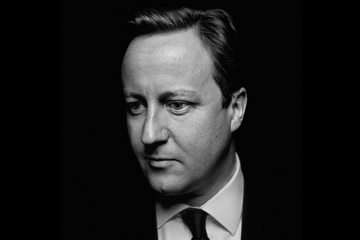
(4 of 5)
The Survation survey and other recent polls suggest the likeliest outcome of this realignment is a triumph for Labour. That might mean Britons are denied a say on E.U. membership--Labour is largely pro-Europe, though some in the party now argue that they too should promise a plebiscite. Cameron has uncorked a genie, and nobody knows who will end up holding the bottle.
Even if Cameron promised the referendum for expediency, no British politician can ignore what's happening across the English Channel. As the 17 countries of the euro zone work to shore up the fracturing single currency, increasing the pace of European integration to make diverse economies behave more like one another, the 10 E.U. countries including the U.K. that retain their own currencies are also affected. Proposals to cap bankers' bonuses and other measures to regulate financial markets risk damaging London's standing as a global financial center. "We have to work out, given [the E.U.] is radically changing in front of our eyes, what's right for Britain," Cameron says. "And in my view, what's right for Britain [is] to say, Hold on a second. The euro is driving a massive process of change. We therefore need to reform the European Union [and] reform our relationship with it."
What He Really Wants
Cameron has yet to clarify what reforms he will seek, instead pinning that decision on the outcome of a grandly titled exercise, the Balance of Competences. Launched last July without Lib Dem backing, this is officially a Conservative Party effort, not a government initiative, to assess the impact of E.U. laws and regulations on the U.K. and other member countries. Such an audit is long overdue.
Though Germany and France, Europe's largest economies, have declined to participate because of the audit's political nature, the exercise is sure to illuminate dark corners and identify areas ripe for reform. Membership in the E.U. confers substantial advantages: nearly 70 years of peace, for one thing; access to the world's largest single market, with a combined GDP of $17.2 trillion; a seat at Europe's top table. But the organization famously lacks accountability; its structures are unwieldy, its costs out of control and its directives labyrinthine.
British Euroskeptics claim that the lack of a detailed list of demands at the outset will allow Cameron to return from E.U. headquarters in Brussels ahead of the referendum waving minor concessions and claiming Britons can now safely vote to stay in the union. But the E.U.'s top official, European Council president Herman van Rompuy, has warned that British demands for reform could endanger the union as a whole. "If every member state were able to cherry-pick those parts of existing policies that they most like and opt out of those that they least like, the union in general, and the single market in particular, would soon unravel," he told the British newspaper the Guardian.
